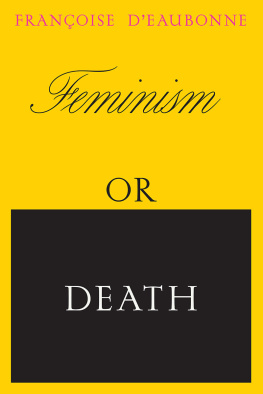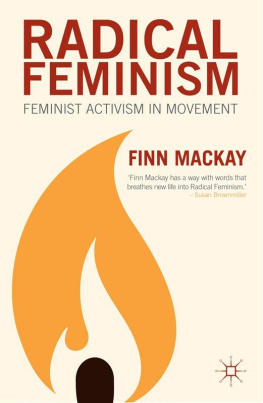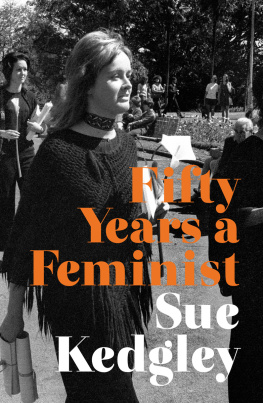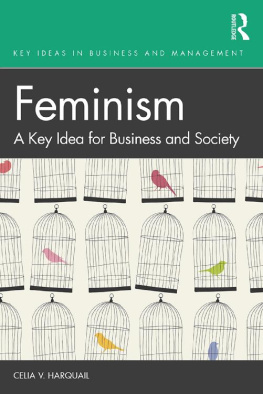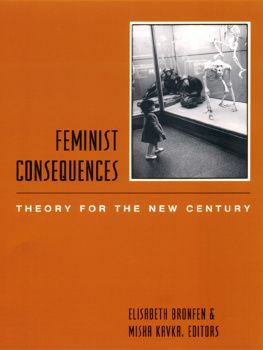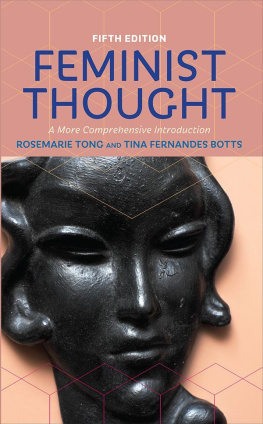Contents

Feminism or Death
Feminism or Death
Franoise dEaubonne
Translated and edited by Ruth Hottell
with a foreword by Carolyn Merchant
and an introduction by
Myriam Bahaffou and Julie Gorecki
translated by Emma Ramadan

This English-language edition first published by Verso 2022
Translation of Feminism or Death and appendices Ruth Hottell 2022
Foreword Carolyn Merchant 1994, 2007, 2022
Introduction to the new French edition Myriam Bahaffou and Julie Gorecki 2020
Translation of introduction to the new French edition Emma Ramadan 2022
First published as Le fminisme ou la mort by Pierre Horay Editions
Franoise dEaubonne 1974
Reissue Le Passager Clandestin, 2020
Carolyn Merchants foreword is drawn from her book Ecology: Key Concepts in Critical Theory
(Humanities Press, 1994 and 2007) and is reprinted here with permission from the publisher.
An earlier version of Ruth Hottells translation of the section Le temps de lco-fminisme
(The Time for Ecofeminism) first appeared in Ecology: Key Concepts in Critical Theory, ed.
Carolyn Merchant (Humanities Press, 1994), 17497.
All rights reserved
The moral rights of the author have been asserted
1 3 5 7 9 10 8 6 4 2
Verso
UK: 6 Meard Street, London W1F 0EG
US: 20 Jay Street, Suite 1010, Brooklyn, NY 11201
versobooks.com
Verso is the imprint of New Left Books
ISBN-13: 978-1-83976-440-0
ISBN-13: 978-1-83976-514-8 (UK EBK)
ISBN-13: 978-1-83976-515-5 (US EBK)
British Library Cataloguing in Publication Data
A catalogue record for this book is available from the British Library
Library of Congress Cataloging-in-Publication Data
Names: Eaubonne, Franoise d, 1920-2005, author. | Hottell, Ruth A., 1952-translator, editor. | Merchant, Carolyn, writer of foreword. | Bahaffou, Myriam, writer of introduction. | Gorecki, Julie, writer of introduction. | Ramadan, Emma, translator.
Title: Feminism or death / Franoise dEaubonne ; translated and edited by Ruth Hottell ; with a foreword by Carolyn Merchant and an introduction by Myriam Bahaffou and Julie Gorecki ; translated by Emma Ramadan.
Other titles: Feminisme ou la mort. English
Description: London ; Brooklyn : Verso, 2022. | First published as Le fminisme ou la mort by Pierre Horay Editions Franoise dEaubonne 1974--Title page verso. | Includes bibliographical references and index.
Identifiers: LCCN 2021051570 (print) | LCCN 2021051571 (ebook) | ISBN 9781839764400 (trade paperback) | ISBN 9781839765155 (ebook)
Subjects: LCSH: Feminism.
Classification: LCC HQ1154 .E2813 2022 (print) | LCC HQ1154 (ebook) | DDC 301.41/2--dc23/eng/20211026
LC record available at https://lccn.loc.gov/2021051570
LC ebook record available at https://lccn.loc.gov/2021051571
Typeset in Fournier by MJ & N Gavan, Truro, Cornwall
Printed and bound by CPI Group (UK) Ltd, Croydon CR0 4YY
To the Biches Sauvages (the Wild Does) of
Brussels: to my young companion Marc Payen
Contents
In 1972, French feminist Franoise dEaubonne set up Ecologie-Fminisme as part of her project of launching a new action: ecofeminism.
DEaubonne presented a litany of planetary ills, ranging from the global population explosion, to worldwide pollution and American consumption, to urban crowding and violence. Both capitalism and socialism were scenes of ecological disasters. The most immediate death threats to the planet were overpopulation (a glut of births) and the destruction of natural resources (a glut of products). Although many men attempted to label overpopulation a Third World problem, the real cause of the sickness was patriarchal power. DEaubonne followed the analysis of nineteenth-and early twentieth-century proponents of ancient matriarchal societies, such as Johann Bachofen, Friedrich Engels, Robert Briffault, and August Bebel, who saw that the worldwide defeat of the female sex some 5,000 years ago initiated an age of patriarchal power.
If women had not lost the war of the sexes when phallocracy was born, dEaubonne maintained, perhaps we would have never known either the jukebox or a spaceship landing on the moon, but the environment would have never known the current massacre. Pollution, environmental destruction, and runaway demography
DEaubonne saw ecofeminism as a new humanism that put forth the goals of the feminine masses in an egalitarian administration of a reborn world. A society in the feminine would not mean power in the hands of women but no power at all. The human being would be treated as a human being, not as a male or female. Womens personal interests join those of the entire human community, while individual male interests are separate from the general interests of the community. The preservation of the earth was a question not just of change or improvement but of life or death. The problem, she said, paraphrasing Marx, is to change the world so that there can still be a world. But only the feminine, which is concerned with all levels of society and nature, can accomplish the ecological revolution. She concluded her foundational essay with the telling words: And the planet placed in the feminine will flourish for all.
In the United States, the term ecofeminism was used at Murray Bookchins Institute for Social Ecology in Vermont around 1976 to identify courses as ecological, e.g., ecotechnology, eco-agriculture, and ecofeminism. The course on ecofeminism was taught by Ynestra King, who used the concept in 1980 as a major theme for
King conceptualized ecological feminism as a transformative feminism drawing on the insights of both radical cultural feminism and socialist feminism. Radical cultural feminists such as Mary Daly in Gyn-ecology (1978) and Susan Griffin in Woman and Nature (1978) linked together the domination of women and nature under patriarchy. For these authors, men use both women and nature to defy death and attain immortality. Women secure their own immortality through childbearing. Natures oppression is rooted in biological difference. For radical feminists, women and nature can be liberated only through a feminist separatist movement that fights their exploitation through the overthrow of patriarchy. Socialist feminists, however, ground their analysis not in biological difference but in the historically constructed material conditions of production and reproduction as a base for the changing super-structure of culture and consciousness. Underlying both positions, King argues, is a false separation of nature from culture. Instead, a transformative feminism offers an understanding of the dialectic between nature and culture that is the key to overcoming the domination of both women and nature. Such a position is needed if an ecological culture that reconnects nature and culture is to emerge.
Australian philosopher Val Plumwood has extended the analysis of domination initiated by dEaubonne and King by comparing the debates between deep ecologists, social ecologists, and ecofeminists. Each group of eco-philosophers makes valid points but in so doing tries to reduce the others to its own critique. Thus, deep ecology is correct to challenge the human-centeredness of social ecology, but social ecology is also right in its analysis that hierarchical differences within human society affect the character of environmental problems. Therefore, an alternative, cooperative approach is needed.

